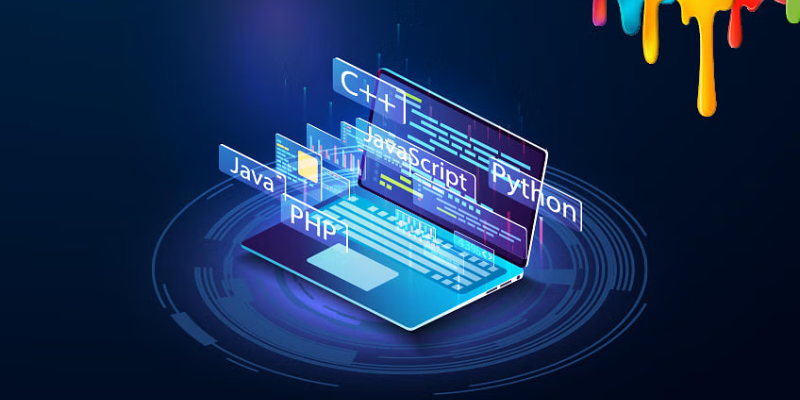
In the ever-evolving technology field, full-stack development has become a highly sought-after skill. Full-stack developers are proficient in front-end and back-end development, making them versatile and valuable assets to any tech team. To excel in this field, it’s essential to master the right programming languages that cater to both ends of the development spectrum. Enrolling in a Full Stack Developer Course in Chennai at FITA Academy can help you gain the necessary skills. This blog will explore some of the top programming languages crucial for full-stack development, offering insights into their strengths and how they contribute to building comprehensive web applications.
JavaScript
Versatility and Ubiquity
JavaScript is the basis for modern web programming. Its versatility allows developers to use it for both front-end and back-end development. JavaScript creates interactive web pages and enhances user experiences on the client side. With the advent of Node.js, JavaScript has also become a powerful tool for server-side programming, enabling full-stack developers to use a single language across the entire stack.
Ecosystem and Community
One of JavaScript’s most significant advantages is its vast ecosystem. Libraries and frameworks like React, Angular, and Vue.js simplify front-end development, while Node.js, Express.js, and Meteor facilitate back-end development. The JavaScript community is large and active, providing ample resources, tutorials, and support for developers at all levels.
Python
Simplicity and Readability
Python is known for its simplicity and readability, making it a good choice for both new and experienced developers. Its clean syntax allows for rapid development and easy code maintenance. Python’s versatility extends to full-stack development languages through frameworks like Django and Flask, which streamline the development of robust web applications.
Powerful Back-End Capabilities
Python excels in back-end development with its extensive libraries and tools for handling databases, user authentication, and application security. Django, for instance, is a high-level web framework that encourages rapid development and clean, pragmatic design. Flask, on the other hand, is a micro-framework that offers flexibility and control over the development process.
Ruby
Elegant Syntax and Productivity
Ruby is another language celebrated for its elegant syntax and developer productivity. Ruby on Rails, a powerful web application framework, follows the convention over configuration (CoC) principle and the don’t repeat yourself (DRY) principle, which streamline the development process and reduce redundancy. This makes Ruby an excellent choice for full stack developer languages.
Strong Community Support
Ruby has a dedicated and passionate community that contributes to a rich ecosystem of libraries, tools, and resources. This support system helps developers quickly find solutions to problems and stay updated with the latest trends and best practices in full stack development. Enrolling in the Best Full Stack Developer Course Online can further enhance your knowledge and skills in utilizing these resources effectively.
Java
Robustness and Scalability
Java is a well-established language known for its robustness, scalability, and cross-platform capabilities. It is widely used in enterprise-level applications and offers strong performance and security features. For full stack development, Java’s Spring Boot framework is a popular choice for building scalable and maintainable back-end services.
Versatile Application
Java’s versatility extends to front-end development with technologies like JavaFX and frameworks like Vaadin, which allow developers to create rich and interactive user interfaces. Additionally, Java’s vast ecosystem and backward compatibility ensure that it remains relevant and useful in modern full stack development.
PHP
Server-Side Strength
PHP has been a staple in web development for decades, particularly for server-side scripting. It is known for its ease of use, flexibility, and extensive documentation. PHP frameworks like Laravel and Symfony provide powerful tools for building robust web applications, making PHP a reliable choice for full stack languages.
Integration and Compatibility
PHP’s compatibility with various databases, web servers, and operating systems makes it a versatile language for full-stack development. It is particularly well-suited for building dynamic web pages and managing server-side logic, ensuring seamless integration with front-end technologies. Join the Training Institute in Chennai to enhance your PHP skills and overall full-stack development expertise.
Choosing the right programming language is crucial for full-stack development, as it directly impacts the efficiency, scalability, and maintainability of web applications. JavaScript, Python, Ruby, Java, and PHP each offer unique strengths and capabilities that cater to different aspects of full-stack development. By mastering these languages, developers can build comprehensive and robust applications, leveraging the best tools and practices from both front-end and back-end development. Whether you are starting your journey as a full stack developer or looking to expand your skill set, these programming languages are essential to success in the dynamic world of web development.
Also Read: Full Stack Developer Interview Questions and Answers